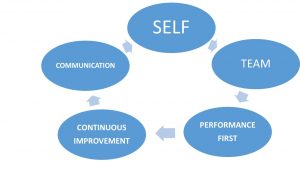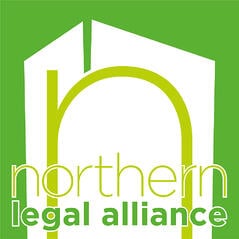‘Winning Behaviours’ – the Team Sky approach to getting the best out of your team
As someone who is certifiably sports mad, I was delighted to attend a keynote talk from Fran Millar, Director of Business Operations and Head of Winning Behaviours at Team Sky, at the recent Lawshare Annual Conference in Manchester.
Fran spoke about many interesting aspects of the Team Sky organisation, but I thought one of the most relevant to share was about the team’s ‘culture’. She believes that is one of the key differences that makes Team Sky that little bit better than all the rest. They even have name for it: ‘Winning Behaviours’.
Team Sky recently spent a lot of time involving everyone in the whole organisation, from Chris Froome, to the mechanics, to the chef, to the bus driver, etc talking through every aspect of their culture, and which parts are good and contribute to their success, which are bad and should be stopped, and so on. The outcome was a ‘code’ by which they live, giving them the optimum environment for success. So, what is this ‘code’, and how might it translate to your team/organisation?
‘Winning Behaviours’

SELF
This is the principle that taking ownership of things for yourself, is key to human success. Giving power and control to the athletes and people in their organisation makes them feel empowered, and helps get the best out of themselves. Even in circumstances where some of their athletes give that control immediately to their coach, the athlete has bought more into the training, race schedule etc, as they have been empowered to give the control to the coach.
TEAM
This piece of the ‘code’ is that working in a team environment creates the optimal environment for success/productivity. The belief must be that the team is made up of people, including your ‘self’, and that your role is crucial to the overall success. Fran spoke of how no single member of Team Sky is bigger than the team itself. If that is the case, you won’t have winning behaviours. At Team Sky, they will select a slightly less well performing athlete/member of staff who is ‘all in’ for the team, over somebody performing at a higher level who is out for themselves.
PERFORMANCE FIRST
This is the principle that if somebody within the team is doing something that is not contributing to the performance, they shouldn’t be doing it. Team Sky have an ‘Outcome Focus’ where they only start something if they know what the intended outcome is. That way, they can identify the milestones along the way, and track progress against those. Therefore, if you are ever doing something that does not contribute towards achieving those tasks/milestones, you should stop doing it as it is not contributing to the desired outcome.
CONTINUOUS IMPROVEMENT / MARGINAL GAINS
This is possibly the aspect of the Team Sky philosophy/culture you have heard of. The idea is that to have a consistently high performing team, you should be constantly looking at every aspect of what you do, to identify each tiny aspect that could be done slightly better in some way. Everybody could be 1% better at their job tomorrow, if you made that an objective for them. If everybody in your organisation is 1% better tomorrow, the organisation or team as a whole becomes significantly better.
One example from Team Sky is their routine at hotels while competing at races around the world. The Tour de France, Giro d’Italia etc require every team to stay in the same/allocated hotels, some of which are better than others! So, Team Sky have a strict routine of going in to the hotel, stripping out the rooms completely and deep cleaning them, before using the same pillows, sheets, duvets etc as the riders have at home, in their own bed. This helps them to sleep and recover better after each stage of the race. In marginal gains philosophy, does that make them win the race? No. Does it help win the race? Yes. The principle of continuous improvement is to keep looking for these marginal gains.
COMMUNICATION
This is a crucial element of the culture of any winning / high performing team. You may have the best plan in the world, but you need to tell the people in your organisation about it. If your people don’t hear about something, they will assume the worst! That is just human nature. Often Managers or Partners in a business take the view that ‘we don’t have anything to tell them yet, we haven’t made a decision’. Simply tell your team that – it will contribute to a higher performing, more engaged and motivated team in a small way, as they feel informed/empowered. A marginal gain if you like.
To conclude, I think there is a lot that businesses of all types can learn from the Team Sky culture and philosophy. There is no doubt that planning and implementing these values/approaches into the core of your organisation would take time and effort. However, I hope you agree it is worth the investment. It has certainly worked for a start-up cycling team, in an ultra-competitive elite sports environment, who have used these ‘Winning Behaviours’ to dominate on the world stage year after year. If it’s helped them, it’s probably going to help your business too.
Gregor
Business Development Manager at The Cashroom Ltd


